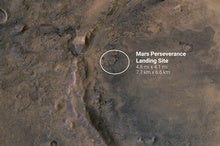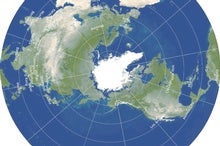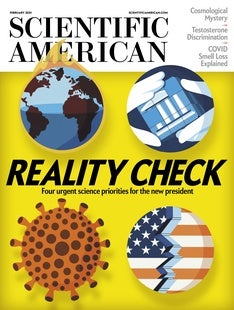 |
| February 17, 2021 |
 |
| Policy & Ethics Stop Domestic Terrorism Our national leaders must take on racist-driven violence in the U.S. By THE EDITORS | |
| |
| |
| |
| |
| |
| |
| |
| |
| |
FROM THE STORE
 | | The Future of Energy: Earth, Wind and Fire Since the Industrial Revolution our civilization has depended on fossil fuels for energy – first it was coal; then petroleum. If business as usual continues, we are looking at a world where sea levels will be high enough to submerge many coastal cities and extreme weather events like 2012's Hurricane Sandy are the new normal. In this eBook, The Earth, Wind and Fire, we review the energy problem and analyze the options from the mundane to the far out. |  | | |
| |
FROM THE ARCHIVE
 | | | |
LATEST ISSUES
 |
| |
| Questions? Comments?  | |
| Download the Scientific American App |
| |
| |
























Comments
Post a Comment